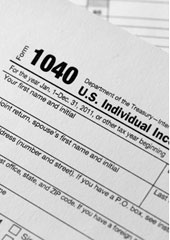Questioning the Economic Benefits of Low Taxes
How do social choices shed a light on differences in tax policy in the United States and Europe?
November 27, 2013

1. The political right in the United States believes that ultra low taxes spurs economic growth.
2. However, in high-tax Europe, productivity — or output per worker, the most important measure of a nation’s ability to generate wealth — grew faster over the last 40 years than in the United States.
3. This held true for countries as varied as Germany, France, Britain and Denmark, despite the same onset of a declining industrial sector seen in the United States.
4. That runs counter to the widely favored the idea in the United States that lower taxes spur productivity.
5. The reason why income per person didn’t grow much faster in Europe than in the United States despite Europe’s higher productivity was because people in those countries chose to devote much of their extra productivity to more leisure.
6. The average American worker spends 1,700 hours a year on the job, 100 fewer than in 1970.
7. In contrast, the average French worker works about 1,500 hours, 500 fewer than 40 years ago.
8. Lifestyle choices play an important role in assessing the benefits of certain tax policies.
From Blessings of Low Taxes Remain Unproved by Eduardo Porter (New York Times)
Takeaways
Output per worker grew faster in high-tax Europe in the past 40 years than in the low-tax U.S.
Lifestyle choices favoring increased leisure time in Europe explain why per capita income didn't rise with output.
The average American worker spends 1,700 hours a year on the job, 100 fewer than in 1970.
The average French worker works about 1,500 hours, 500 fewer than 40 years ago.
